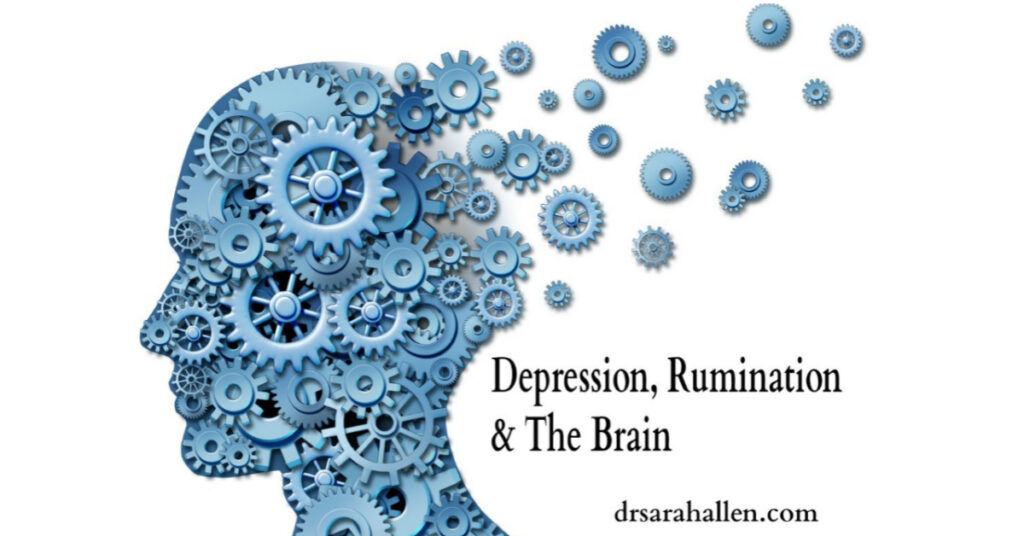
Depression and rumination are closely linked, and both can have a significant impact on your mental well-being. Rumination involves continuously thinking about the same negative thoughts. This cycle can make feelings of depression worse over time. Understanding how these two are connected can help you find ways to improve your mental health.
In this article, I will explain what happens in the brain when you are depressed and why rumination is so hard to stop. The brain is a powerful organ that influences how you think and feel. Knowing what parts of the brain are involved in depression and rumination can make it easier to find effective ways to cope.
Depression affects many people, and it can change the way the brain functions. When you understand these changes, you are better equipped to manage your symptoms. Keep reading to learn about the connection between rumination and depression and how you can take steps to reduce these negative thought patterns.
Understanding the Link Between Rumination and Depression
Rumination and depression often go hand in hand. Rumination means repeatedly thinking about the same thoughts, usually negative ones. This cycle can make depression worse because it keeps you focused on problems and negative feelings, rather than solutions or positive experiences.
When you ruminate, you start to dwell on past events or worry about the future. This can lead to feelings of sadness, hopelessness, and anxiety, which are symptoms of depression. The more you ruminate, the more these negative feelings increase, creating a vicious cycle that is hard to break.
Studies have shown that people who ruminate are more likely to experience severe and longer-lasting episodes of depression. Rumination makes it difficult to find new ways to cope with problems, because your mind is stuck in a loop of negative thinking. Breaking this cycle is crucial for improving mental health and reducing depressive symptoms.
The Neurological Basis of Rumination
The brain is a complex organ, and different parts are responsible for various functions, including mood regulation. Rumination involves several areas of the brain, such as the prefrontal cortex and the amygdala. These areas are also linked to depression.
The prefrontal cortex helps with thinking, planning, and decision-making. If you ruminate, this part of the brain is often overactive. When the prefrontal cortex is overactive, it can be hard to stop thinking about negative thoughts, making it easier to get stuck in a cycle of rumination.
The amygdala is responsible for processing emotions, especially negative ones. In those who are depressed, the amygdala may react more strongly to negative stimuli. This heightened response can make ruminating thoughts even more intense and harder to ignore.
Recent studies have used brain imaging to show that these areas are more active in people who ruminate and have depression. Understanding the neurological basis of rumination helps in developing treatments that can target these specific brain areas, providing better ways to manage both rumination and depression.
How Depression Affects the Brain
Depression impacts several regions of the brain, altering their structure and function. One key area affected by depression is the hippocampus, which plays a vital role in memory and learning. In people with depression, the hippocampus tends to shrink, which can result in memory issues and difficulties concentrating.
Another important area is the prefrontal cortex. This part of the brain helps with decision-making, problem-solving, and controlling emotions. Depression can cause the prefrontal cortex to become less active, making it harder to perform everyday tasks and manage emotions.
Lastly, the amygdala, which is responsible for processing emotions, can also be affected by depression. This area may become overactive, leading to heightened feelings of fear, sadness, or anger. These changes make it more challenging to break free from negative thought patterns and can intensify symptoms of depression.
Understanding how depression affects these brain regions helps in developing better treatments. Therapies targeting these areas aim to improve brain function and reduce symptoms, offering hope for those struggling with depression.
Practical Tips to Reduce Rumination
Reducing rumination requires mindful effort and practice. Here are some simple tips to help you manage this harmful habit:
1. Distract Yourself: Engage in activities that require focus, like puzzles, reading, or hobbies. Keeping your mind busy helps divert attention away from negative thoughts.
2. Set Time Limits: Allocate a specific time to think about your concerns. Limit this time to 10-15 minutes a day, and then move on to other activities.
3. Practice Mindfulness: Mindfulness exercises, such as deep breathing and meditation, can help you stay present and reduce overthinking.
4. Challenge Your Thoughts: When you catch yourself ruminating, question the validity of these thoughts. Are they realistic or exaggerated? Reframing your thoughts can break the cycle of negativity.
5. Seek Professional Help: If rumination becomes overwhelming, talking to a therapist can be very beneficial. Therapy offers tools and strategies tailored to your needs.
By incorporating these strategies into your daily life, you can start to break free from the cycle of rumination and improve your mental well-being.
Conclusion
Depression and rumination are deeply connected, and both significantly impact the brain. Understanding the neurological basis of these conditions can help you find effective ways to manage them. The hippocampus, prefrontal cortex, and amygdala are some of the main brain regions affected by depression, influencing memory, decision-making, and emotions.
While depression and rumination can be challenging, there are steps you can take to mitigate their effects. Simple practices like staying busy, setting thought boundaries, and practicing mindfulness can make a big difference but if these self-help strategies don’t help, please consider seeking professional assistance which can offer targeted strategies to help you manage symptoms and get to the bottom of why you are having them.
If you are struggling with depression and rumination, consider reaching out for expert guidance. I offer depression counseling in person in Northbrook, and across IL, FL & the UK virtually and specialize in helping individuals understand and manage these issues. Schedule a consultation with me today, and take the first step towards a healthier, more balanced life!

If you have any questions, or if you would like to work with me and learn more about how to manage depression, please phone me at 847 791-7722 or on the form below.
If you would like to read more about me and my areas of specialty, please visit Dr. Sarah Allen Bio. Dr. Allen’s professional license only allows her to work with clients who live in IL & FL & the UK and unfortunately does not allow her to give personalized advice via email to people who are not her clients.
Dr. Allen sees clients in person in her Northbrook, IL office or remotely via video or phone.

What Can I Read That Helps Me While I Am Waiting For My First Appointment With Sarah?
Download this free report to gain valuable insights and practical strategies for managing depression and reclaiming your peace of mind.













